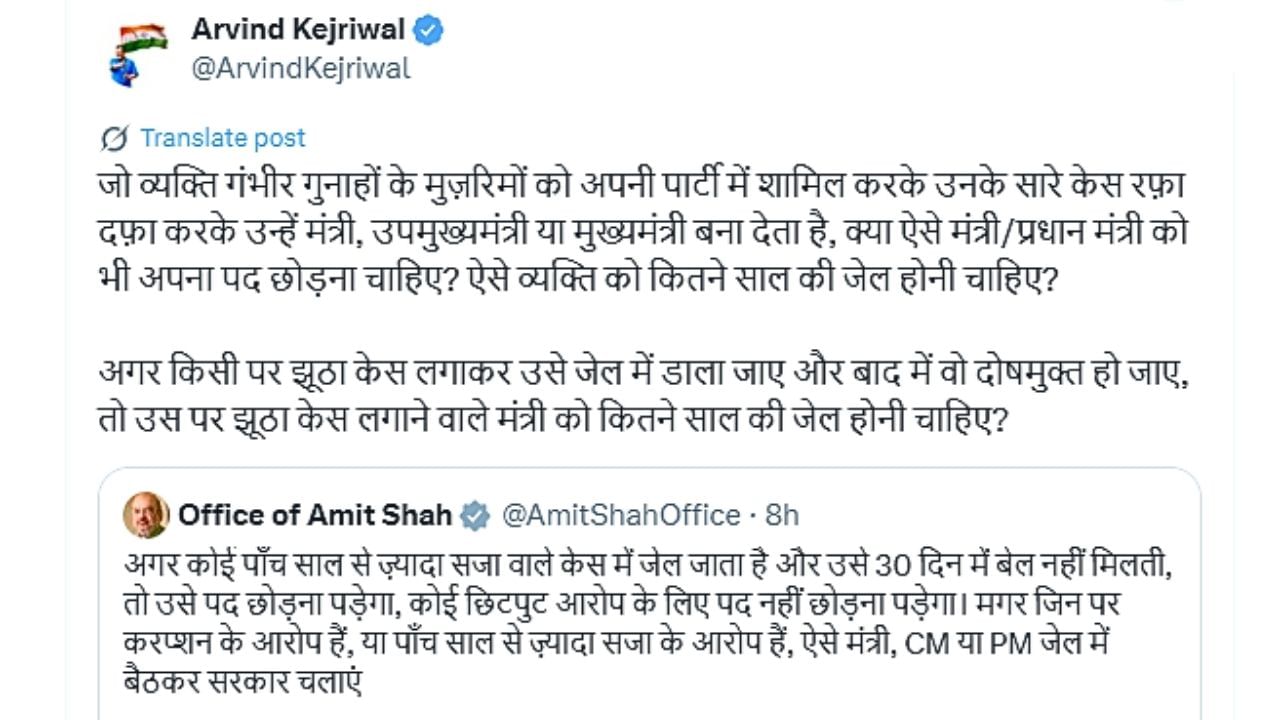New Delhi: Former Chief Minister of Delhi Arvind Kejriwal slammed Home Minister Amit Shah on the constitution amendment bill introduced for the removal of PM, CMs or other Ministers arrested for 30 consecutive days for serious crimes. Kejriwal asked Amit Shah what should be done with a politician who gets all their cases dismissed after joining a political party.
Arvind Kejriwal on the social media platform X, quoted the tweet of Amit Shah where he was justifying the PM, CM, Ministers removal bill. Amit Shah’s tweet in Hindi read, “If someone goes to jail in a case with a punishment of more than five years and does not get bail within 30 days, then they will have to step down from their post. For minor charges, they will not have to resign.”
“But if there are corruption charges, or charges carrying punishment of more than five years, then is it appropriate that such Ministers, Chief Ministers, or even the Prime Minister should run the government while sitting in jail?” Shah added.
Responding to it, Kejriwal asked, “A person who includes serious criminals in his party, gets all their cases dismissed, and makes them ministers, deputy chief ministers, or chief ministers, should such a minister/prime minister also have to resign? How many years of imprisonment should such a person get?”
“If someone is falsely implicated in a case and sent to jail, and later acquitted, then how many years of imprisonment should the minister who filed the false case receive?” added Kejriwal.
जो व्यक्ति गंभीर गुनाहों के मुज़रिमों को अपनी पार्टी में शामिल करके उनके सारे केस रफ़ा दफ़ा करके उन्हें मंत्री, उपमुख्यमंत्री या मुख्यमंत्री बना देता है, क्या ऐसे मंत्री/प्रधान मंत्री को भी अपना पद छोड़ना चाहिए? ऐसे व्यक्ति को कितने साल की जेल होनी चाहिए?
अगर किसी पर झूठा केस… https://t.co/cK3kNZrY14
— Arvind Kejriwal (@ArvindKejriwal) August 25, 2025
The three bills tabled in the monsoon session of Parliament propose a legal reform requiring politicians in prominent positions in the government, like the Prime Minister, Chief Ministers or Ministers, to resign if they are arrested for 30 days in a row for a crime with a punishment of over five years. The bills, according to the government, aim to address the problem of corruption in Indian politics. However, the opposition parties have raised questions on its fairness, given the historical leniency of the probe agencies towards political allies.
